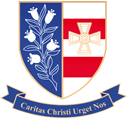Key Stage 3:
Pupils all learn to play the keyboard in Music and develop the quality, depth and breadth of their musical understanding through performing, composing , listening and appraising.
They learn through the context of topics such as Rock and Pop Music, Theme and Variation and World Music and Sport. Music lessons are extremely practical and pupils who learn an instrument are encouraged to use these in the classroom.
Key Stage 4:
Students study the OCR board for GCSE Music. This involves four units. In Unit B351 they focus on their instrument / voice and produce a performance, a composition and a piece of written work about these. Unit B352 is similar but they need to perform as part of a group and produce a dance composition for any instrument(s). The two examined units involve a composition exam (B353) where the pupils compose a piece in 45 minutes based on a stimulus provided by the exam board, and a listening exam (B354). All students have the opportunity to use Sibelius and Garage Band software on the Apple Macs and the recording studio.
Key Stage 5:
Why study Music?
Studying music at St Joseph’s offers you the chance to be a part of a vibrant music department with a range of opportunities both inside and outside the classroom.
Within the course you are able to work to your musical strengths and explore your interests further whilst exploring a range of music from a range of genres.
Course Content
Unit 1: Performance – Performance is worth 30% of the course and is assessed as coursework. Performances are recorded as part of a public recital but you can choose what you want to perform. This could be solo or ensemble performances as well as improvising or realising using music technology.
Unit 2: Composition – composition is worth 30% of the course is also assessed as coursework. You will compose two compositions, one that links to an Area of Study in Unit 3 and one complete free choice.
Unit 3: Listening and Appraising Music is worth 40% of the course and is the only unit in the coursework to be assessed by a final exam. In this unit you will study a range of musics including: Vocal and Instrumental Music, Pop and Jazz, Music for Film and Fusions.
Whilst the course is open to anyone it is highly recommended that you can play an instrument to approximately Grade 5 standard and can read staff notation.
A Level Bridging Course (Download 1 | Download 2)
Further Education & Career Opportunities:
An A Level in music is extremely beneficial to those wishing to study at degree level as this could lead to careers such as: musicologists; composers/arrangers; music education; and music therapy.
Alternatively some students use an A Level in music for a more practical options including: performing as a soloist or band, sound technician, and events coordinating.


